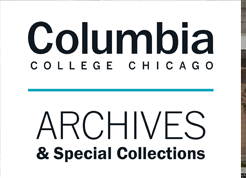Document Type
Article
Loading...
Publication Date
Spring 2009
Keywords
Northern Illinois University, Vietnam War, Students, Political activity, World Council of Churches, Germany, Malcolm X, Martin Luther King Jr., Dennis Brutus, Prexy Nesbitt, Clergy and Laity Concrened, Lisa Brock, Cheryl Johnson-Odim, Coalition for Illinois Divestment from South Africa, Chicago Committee in Solidarity for Southern Africa, African National Congress, Harold Washington, American Friends Servie Committee, American Committee on Africa, Free South Africa Movement, Civil rights, Religious aspects, Christianity, Shell Oil Company, Mozambique Solidarity Network, Zimbabwe, Jeremiah A. Wright Jr., Methodist Church, Lake View Citizens Council, Pan African Congress, Nelson Mandela
Disciplines
African American Studies | African History | African Languages and Societies | American Politics | Civic and Community Engagement | Cultural History | History | Inequality and Stratification | International Relations | Other Political Science | Place and Environment | Political History | Political Science | Political Theory | Race and Ethnicity | Race, Ethnicity and Post-Colonial Studies | Work, Economy and Organizations
Abstract
Length: 91 minutes
Oral history interview of Carol Thompson by Marcia Monaco
In this interview, Carol Thompson recalls her involvement and work in the anti-apartheid movement. She explains that her awareness of the anti-Apartheid movement began while at Northern Illinois University, but she first became involved after she moved to Chicago, when she met South African author, Donald Woods, which led to her involvement in the Dennis Brutus’ defense committee. She recalls that she initially worked with Clergy and Laity Concerned and later, alongside Prexy Nesbitt, became a founding member of CIDSA, which was committed to passing legislation in Chicago and Illinois for divesting funds from South Africa. She discusses her work at universities, involved in campus campaigns and worked with colleges in Illinois with the Illinois Labor Network Against Apartheid. She mentions heading up a ward in Chicago for Harold Washington’s campaign and working for the Lake View Citizens’ Council on fair housing rights. She explains how, during the first free elections in South Africa, she and others supported a delegation from Chicago to observe the elections, recruiting individuals, raising money, and educating them on life in South Africa.
Recommended Citation
Monaco, Marcia. "Interview with Carol Thompson" (Spring 2009). Oral Histories, Chicago Anti-Apartheid Collection, College Archives & Special Collections, Columbia College Chicago. http://digitalcommons.colum.edu/cadc_caam_oralhistories/5
Creative Commons License

This work is licensed under a Creative Commons Attribution-NonCommercial-No Derivative Works 4.0 International License.
Included in
African American Studies Commons, African History Commons, African Languages and Societies Commons, American Politics Commons, Civic and Community Engagement Commons, Cultural History Commons, Inequality and Stratification Commons, International Relations Commons, Other Political Science Commons, Place and Environment Commons, Political History Commons, Political Theory Commons, Race and Ethnicity Commons, Work, Economy and Organizations Commons



Biography and Comments
Carol Thompson was born in 1950. in Chicago, later moving to Palatine, Illinois. She graduated from Northern Illinois University in 1973 with a bachelor’s degree in Theater. She has been a member of Clergy and Laity Concerned, the Coalition for Illinois Divestment from South Africa, the Chicago Committee and Solidarity for South Africa, and she supported projects on the ground in South Africa, developing a sister community relationship with Alexander Township in South Africa.
The interviewer conducted this oral history as part of his/her coursework for the Spring 2010 class, Oral History: The Art of the Interview. This interview supports the scope and content of the Chicago Anti-Apartheid Movement Collection at the College Archives & Special Collections department of Columbia College Chicago. Contact archives@colum.edu for more information and to view the collection.